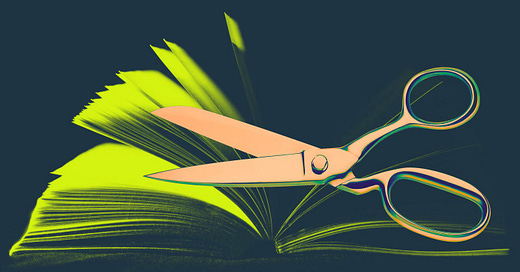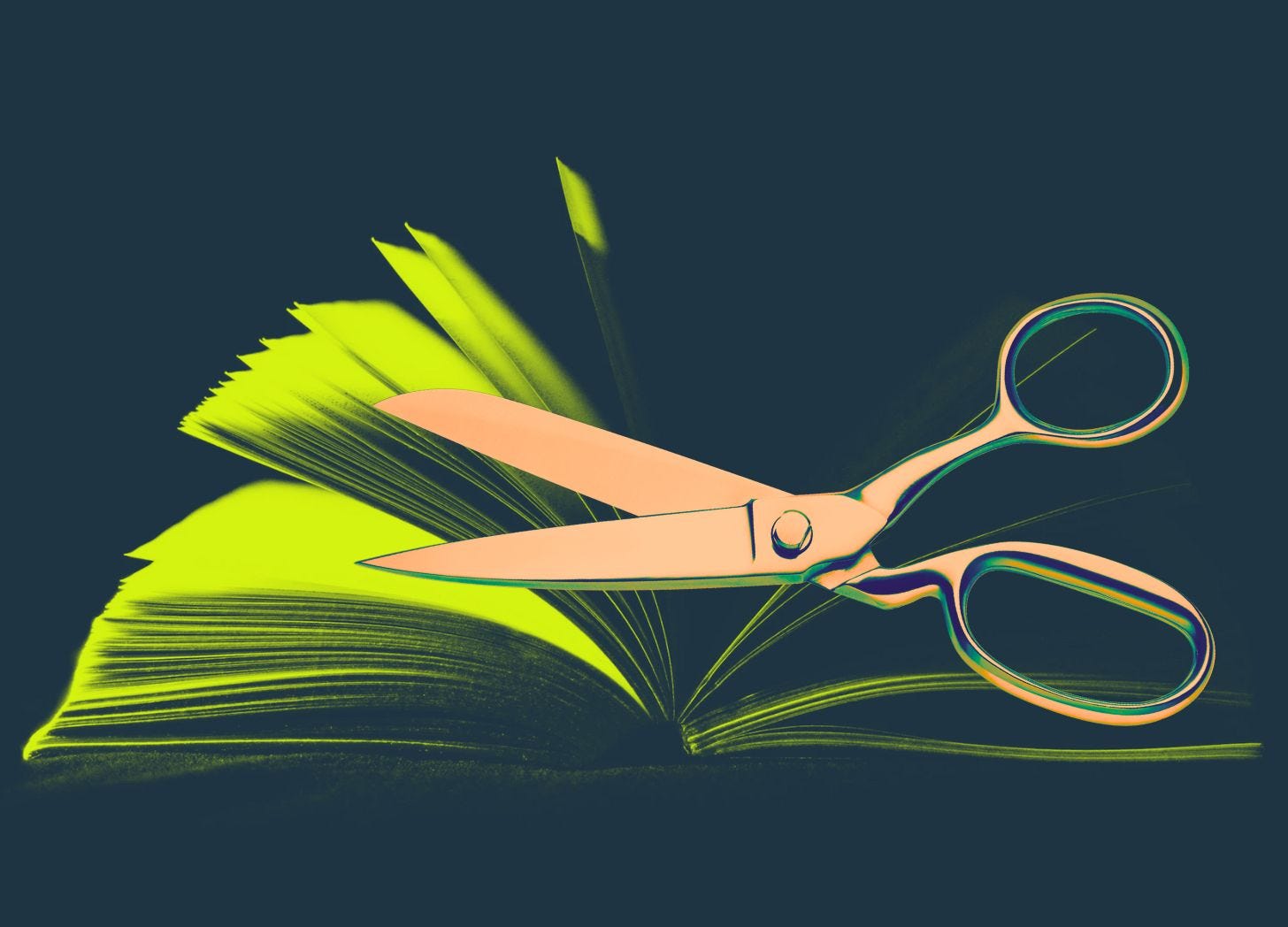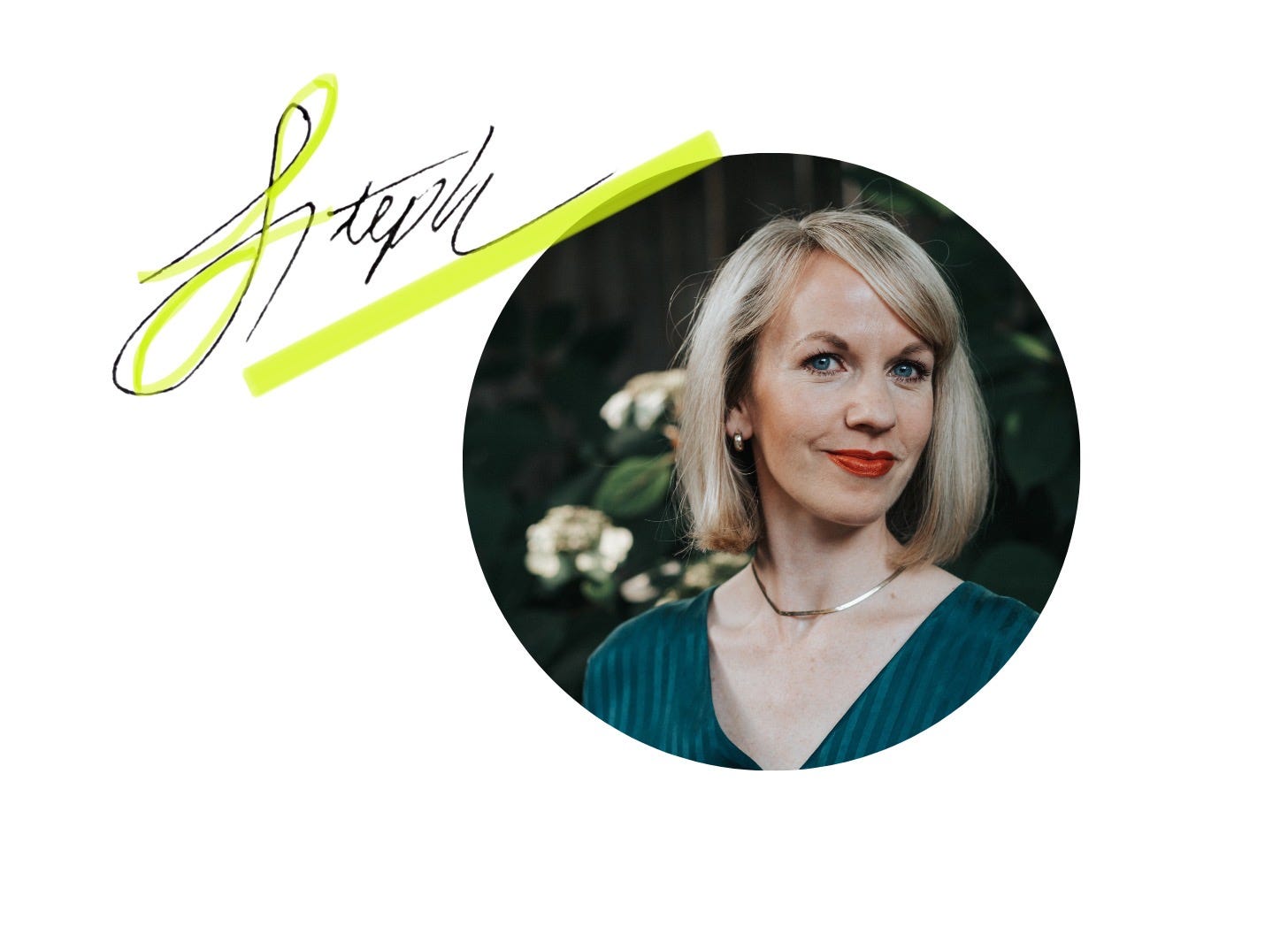An Author and Editor's Plea to Writers in the Age of AI
On staying with your voice in a copy-paste creative culture
Some years ago when we lived in Tennessee, Zach and I crashed back at our apartment after a weekend road trip to Asheville and as soon as I opened the door I knew something was wrong.
“Zach,” I said, panic swirling with disbelief, “The TV is gone.” It was. And so was most everything else that whoever swept the place deemed valuable. They went through our desks, closets, drawers, took old cameras with SD cards full of photos I’ll never get back, tools that belonged to my husband’s grandfather, watches and earrings that tethered us to people we love.
We filed a police report and forensics came in their black suits to dust for fingerprinting, though they never found whoever did it (and we moved not long after). For weeks after, I would find the magnetic dust in the strangest places—my top dresser drawer, the windowsill where the peaches were ripening, the cup that held our toothbrush couplet. Places no stranger should have been.
The forensic dust unnerved me wherever I encountered it, and I encountered it as residual violence. There’s a haunting of helplessness that happens when something is taken from you that is yours, and we’ve had to work through that.
Last month, I had the dark déjà vu experience of opening the door, and knowing something was wrong. Except this time, there were no fingerprints, fingerprints being one of the markers of being human that AI doesn’t have.
You probably saw, as I did, streams of published authors saying, yes, my book(s) is in the LibGen database as made public by The Atlantic. In January, reports emerged that Meta, who of course owns Facebook and Instagram, used LibGen—a pirated digital library of 7.5 million books and 81 million academic papers—to train its AI language model.
“Devastating,” and “horrifying” are some of the descriptors I’m seeing used. Maybe you found your work in the database. If it feels gutting to have your creative labor stolen without your knowledge or consent, that’s because it is. I’m only just writing about this now because it’s taken this long for me to process.
Let’s call this egregious copyright violation for what it is: This is a creative break-in.
Your voice. Your vision. Your labor. Your body of work and the library of your life experiences.
All of this—swiped and tossed into the technological wood chipper to be spliced into a million pieces and re-composed under someone else’s byline, at the click of a mouse.
If you’ve read Even After Everything, you know it is a deeply personal narrative that took me five years to live and write. Every author I know fights the fight of their life to bring their book into being. This is a hard-won process, and as a Slant Letter reader you already know my core belief that creativity is a spiritual practice.
It rightly knocks the wind out of you to think of all that beautiful creative and spiritual labor just fed to the machine. If that’s you, I’m so sorry, and I’m wind-knocked right alongside you.
If your work was stolen, there are steps you can take and the Authors Guild’s summary is a good place to begin.
But today I want to make an author and editor’s plea to writers in the age of AI.
While others might threaten or compromise their artistic integrity, do everything you can to stay with your voice. Do everything you can to keep company and practice presence with your inner life, the creative core that AI will never have that animates and enlivens your every word.
It’s an egotistical embarrassment that a plagiarizing company would dare coronate itself as LibGen, short for “Genesis Library,” invoking the creative force of the oldest story, the ancient beginning, of God kneeling and scooping up a swirling handful of dust, saying, “Let there be life.” The taproot words of “genesis” are “becoming,” and, “being born,” “origin,” and “source.”
I believe we are made makers, and this creative capacity is alive within you as long as you draw breath.
Make no mistake: You are the origin. You are the source.
Writers, humans, are people in becoming. For AI, there is no becoming—the algorithm just gets better, the more it feeds off the labor of our humanity.
Writers are the makers of the process, as much as we are made by the process, in vibrant creative reciprocity. Writers are necessarily changed by our work. This work stretches you, and it is meant to. It’s personal, as it should be. The creative act writes us as much as we write the page. AI is simply a product manufacturing a product.
Writers tend to the senses, but AI has no eyes to see, ears to hear, hands to touch.
If you hear nothing else, I hope you’ll hear this: The click-scroll-double-tap of artificial intelligence is no match for the infinity within you. The powers of your voice and vision flow from the creative core of your inner life, which AI will never have. The call, then, is to stay close to your creative core. Keep active and fluent in the arts of sacred attention. Keep practicing presence to your life and its gorgeous interconnections with all life, for this is what animates your work.
This is your singular fire. Don’t let it burn out.
If this resonates, 💛 this and I’d love to hear from you in the comments—how are you tending to your inner life right now? What’s something that’s nourishing you creatively? Let’s take notes from each other.
Take heart and stay feisty,








I have long enjoyed your letters, but this is the first time I am commenting. Thank you for putting language to what I am grappling with in my high school English classroom. I will reading this to my students and discussing it.
Amen, thank you for these words! I've started saying no to companies or contract writing gigs that heavily rely on AI to write their copy. It makes me feel gross. I'd rather fight the fight of my life any day than lose my voice in the process.